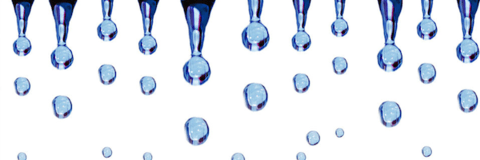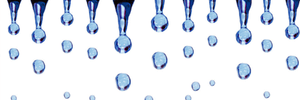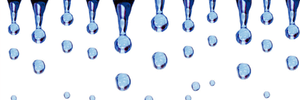Inflammation Studies
Improvement of psoriasis-associated arthritis by treatment with molecular hydrogen
Psoriasis, a chronic inflammatory skin disease, is caused by infiltrating lymphocytes and associated cytokines, including tumor necrosis factor (TNF)α, interleukin (IL)-6, and IL-17. Effective treatments, including pathogenesis-based biological agents against psoriasis, are currently under development. Although the role of reactive oxygen species (ROS) in the pathogenesis of psoriasis has been investigated, it remains to be fully elucidated; ROS-targeted therapeutic strategies are also lacking at present. Therefore, the objective of the present study was to assess whether H2, a ROS scavenger, has a therapeutic effect on psoriasis-associated inflammation by reducing hydroxyl radicals or peroxynitrite in the immunogenic psoriasis cascade. Three methods were used to administer H2: Drop infusion of saline containing 1 ppm H2 (H2-saline), inhalation of 3% H2 gas, and drinking of water containing a high concentration (5-7-ppm) of H2 (high-H2 water). Treatment efficacy was estimated using the disease activity score 28 (DAS28) system, based on C-reactive protein levels, and the psoriasis area and severity index (PASI) score, determined at baseline and following each H2 treatment. Furthermore, levels of TNFα, IL-6, and IL-17 were analyzed. The DAS28 and PASI score of the three patients decreased during H2 treatment, regardless of the administration method. The psoriatic skin lesions almost disappeared at the end of the treatment. IL-6 levels decreased during H2 treatment in Case 1 and 2. IL-17, whose concentration was high in Case 1, was reduced following H2 treatment, and TNFα also decreased in Case 1. In conclusion, H2 administration reduced inflammation associated with psoriasis in the three cases examined and it may therefore be considered as a treatment strategy for psoriasis-associated skin lesions and arthritis.
Ishibashi T, Ichikawa M, Sato B, et al. Improvement of psoriasis-associated arthritis and skin lesions by treatment with molecular hydrogen: A report of three cases. Mol Med Rep. 2015 Aug;12(2):2757-64.
Hydrogen-rich water improved liver function in patients with chronic hepatitis B
This study investigated effects of hydrogen-rich water (HRW) on oxidative stress, liver function and HBV DNA in patients with chronic hepatitis B (CHB). Sixty patients with CHB were randomly assigned into routine treatment group or hydrogen treatment group in which patients received routine treatment alone or additional oral HRW (1200-1800 mL/day, twice daily), respectively, for 6 consecutive weeks. Serum oxidative stress, liver function, and HBV DNA level were detected before and after treatment. Thirty healthy subjects served as controls. When compared with controls, oxidative stress was obvious in CHB patients, and the liver function also significantly impaired. After treatment, the oxidative stress remained unchanged in routine treatment group, but markedly improved in hydrogen treatment group. The liver function was improved significantly and the HBV DNA reduced markedly after corresponding treatments. Although a significant difference was noted in the oxidative stress between two groups after treatment, the liver function and HBV DNA level were comparable after treatment and both had improved tendencies. HRW significantly attenuates oxidative stress in CHB patients, but further study with long-term treatment is required to confirm the effect of HRW on liver function and HBV DNA level.
Xia C, Liu W, Zeng D, Zhu L, Sun X, Sun X. Effect of hydrogen-rich water on oxidative stress, liver function, and viral load in patients with chronic hepatitis B. Clin Transl Sci. 2013 Oct;6(5):372-5.
Molecular hydrogen reduces oxidative stress and disease activity in patients with rheumatoid arthritis
Rheumatoid arthritis (RA) is a chronic inflammatory disease characterized by the destruction of bone and cartilage. Although its etiology is unknown, the hydroxyl radical has been suggested to be involved in the pathogenesis of RA. Recently, molecular hydrogen (H2) was demonstrated to be a selective scavenger for the hydroxyl radical. Also, the method to prepare water containing extremely high concentration of H2 has been developed. We hypothesized that H2 in the water could complement conventional therapy by reducing the oxidative stress in RA. Twenty patients with rheumatoid arthritis (RA) drank 530 ml of water containing 4 to 5 ppm molecular hydrogen (high H2 water) every day for 4 weeks. After a 4-week wash-out period, the patients drank the high H2 water for another 4 weeks. Urinary 8-hydroxydeoxyguanine (8-OHdG) and disease activity (DAS28, using C-reactive protein [CRP] levels) was estimated at the end of each 4-week period. Drinking high H2 water seems to raise the concentration of H2 more than the H2 saturated (1.6 ppm) water in vivo. Urinary 8-OHdG was significantly reduced by 14.3% (p < 0.01) on average. DAS28 also decreased from 3.83 to 3.02 (p < 0.01) during the same period. After the wash-out period, both the urinary 8-OHdG and the mean DAS28 decreased, compared to the end of the drinking period. During the second drinking period, the mean DAS28 was reduced from 2.83 to 2.26 (p < 0.01). Urinary 8-OHdG was not further reduced but remained below the baseline value. All the 5 patients with early RA (duration < 12 months) who did not show antibodies against cyclic citrullinated peptides (ACPAs) achieved remission, and 4 of them became symptom-free at the end of the study. The results suggest that the hydroxyl radical scavenger H2 effectively reduces oxidative stress in patients with this condition. The symptoms of RA were significantly improved with high H2 water.
Ishibashi T, Sato B, Rikitake M, Seo T, Kurokawa R, Hara Y, et al. Consumption of water containing a high concentration of molecular hydrogen reduces oxidative stress and disease activity in patients with rheumatoid arthritis: an open-label pilot study. Med Gas Res. 2012;2:27.



